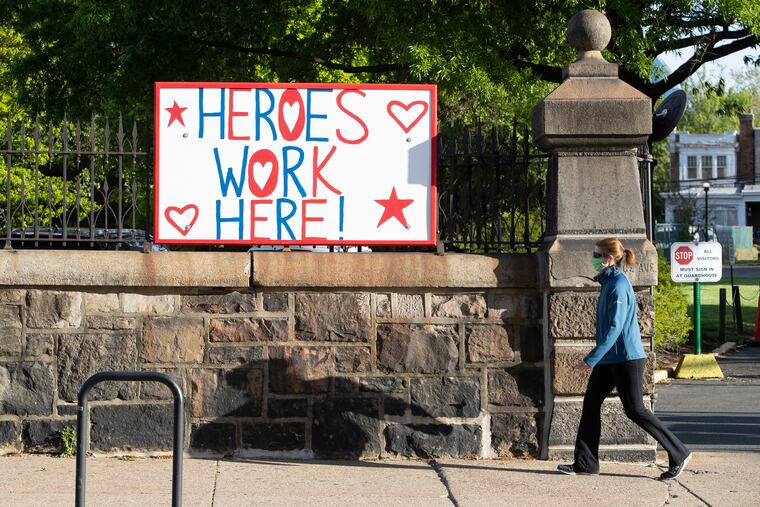COVID-19 has created a ‘quiet agony’ in nursing homes | Expert Opinion
Two months ago, our nursing home stopped allowing visitors to enter the facility in an attempt to keep out COVID-19.

A nursing home with COVID-19 is eerily quiet. At first COVID-19 enters unnoticed, spreading rapidly. Then someone starts coughing or has a fever and everything changes. Patients are confined to their rooms. There are no more activities or trips down to the hairdresser. The halls are empty. Most patients do not understand why things have changed. Some become confused, others agitated, still others sad and withdrawn.
Two months ago, our nursing home stopped allowing visitors to enter the facility in an attempt to keep out COVID-19. A 95-year-old patient of mine with dementia began sitting in his wheelchair near the front door of the building every morning waiting for his wife to visit, as she had every day for the past five years. He asked each person who walked by when his wife would be there. We would patiently explain that no visitors were allowed due to the pandemic. He would say that is not fair, and 20 minutes later, since he could not remember our explanation, he would be waiting again and looking through tears toward the door. Now, since COVID-19 has been confirmed in the facility, he is confined to his room.
An elegant woman whose scarves always matched her shirts, and who at age 97 was still insightful and intelligent, was sent to the hospital a week ago with COVID-19. She did well in the hospital and was released back to the nursing home. When she arrived, she told us that if she got worse, she did not she want to go back to the hospital. She said, with the conviction that comes from a life well-lived, “If I am to die from this, I want to die around those who know me.” There was no room for discussion. Two days later she started to have trouble breathing. We treated her at the nursing home, consistent with her and her families wishes. When she passed away, the staff, who knew her well, cried.
It is this quiet agony that tugs at me. It is the bravery and compassion of all of the staff in the nursing home — those who cook and clean, the nursing assistants and staff – who return each day despite the danger, that sustains my desire to show up and give what care I am able to provide. As a geriatrician, I’ve learned to accept death as a part of life. I realize that we all eventually lose those we love. Life is precious and fleeting. I do what I can.
» READ MORE: Penn Medicine is working with West Philadelphia nursing homes to improve coronavirus care
COVID-19 has changed the landscape of dying. As a patient gets worse, depending on their advance directive and the wishes of their family, we might send them to the hospital, or they might remain in their room to be provided comfort in familiar surroundings. While short visits are allowed when a patient’s death is imminent, COVID-19 can progress rapidly making the timing of those visits uncertain. In addition, for patients in their 80s and 90s, many times their children are in high risk groups, making even brief visits potentially perilous. Gone are the rites of passage that are embedded in our religions.
The wing with the patients who have COVID-19 is separate from the other parts of the nursing home. It is quiet and lonely. I walk into the room of my patient who is dying from COVID-19. Her family decided it would be best for her to remain here rather than be sent to the hospital. The curtains are drawn. I look around. On the wall is a picture of her husband. I took care of him before he passed away three years ago. There is also a drawing from one of her great grandchildren. I listen to my patient’s lungs. I hear gurgling, a sign her lungs are filling with fluid. The only other sound is the hum of the oxygen machine, easing her breathing. Morphine is helping as well. I stand quietly and close my eyes, then I leave; there are more patients to see.
» READ MORE: Most Pa. nursing homes with 20 or more coronavirus deaths are in Philly and its suburbs, long-sought data show
Neil Skolnik is a professor of family and community medicine at the Sidney Kimmel Medical College of Thomas Jefferson University and associate director of the Family Medicine Residency Program at Abington Jefferson Health.